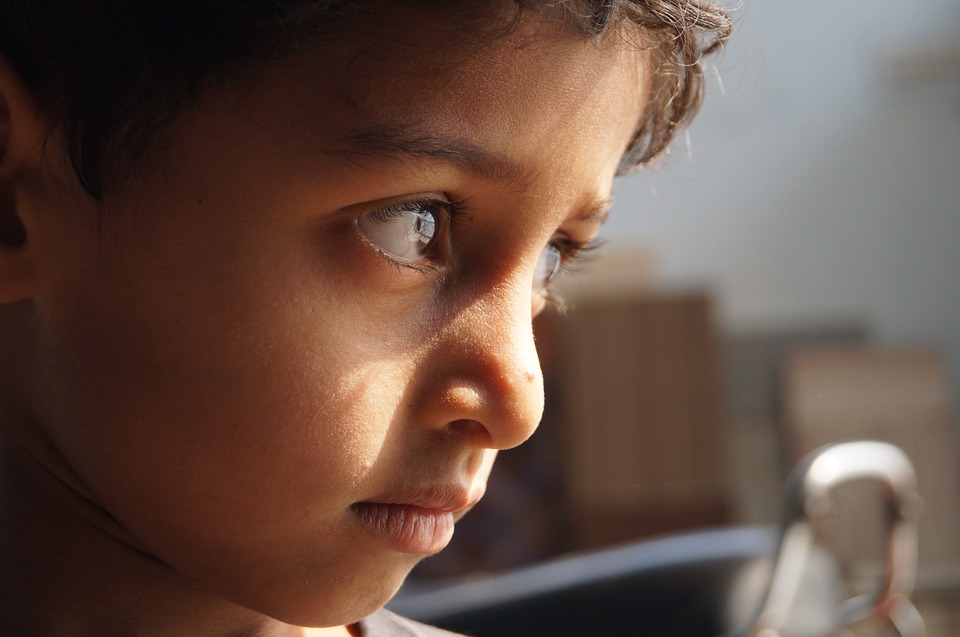
In the book I’m currently reading aloud to my daughter, there is a scene where the (male, 12-year-old) protagonist’s former best friend plays a “prank” and kisses a fourth-grade girl on the lips on the school bus. The girl is duly alarmed, and the protagonist, Obe, gives his witness of the event, resulting in the suspension of his former pal. This all seemed right, but when Obe is talking about the situation with his parents and sister, both parents defend the friend, giving lines like, “It was just a prank,” “That’s a tough punishment,” and “He’s a 12-year-old boy.”
I never want to be that parent.
I have two daughters and two sons, and with everything that’s come to the forefront with #metoo, I get worried about all of them. I want to teach them all to respect their own bodies and everyone else’s and teach them what is completely unacceptable.
I don’t claim to be any kind of expert, but since my kids were babies I have really tried to establish the fact that their bodies are their own. I hope it’s a lesson they will carry with them, internalized so much that they know instinctively what is and isn’t OK. And that if it were their friend kissing a girl against her will on the bus stop, they would stick up for what is right and not what might be the easiest.

Here are some simple ways I try to support bodily autonomy at home:
1. Simply explaining what I’m doing.
Even when my babies were tiny, I would tell them, “I’m going to change your diaper now! I’m going to rub lotion on you, OK?” It makes me feel like I am not forcing myself on the baby but involving him in a conversation about his body. Perhaps this is crazy, but as these babies grow into toddlers and more understanding, it definitely helps them to be in control of a situation involving their body. My toddler may not have a true choice about a diaper change, but she does know what’s happening, why I am doing it, and isn’t just being tossed on the floor without explanation.
2. Respecting decisions that may seem trivial to me.
Right now, my seven-year-old son David has a tooth that is so loose. SO LOOSE. Loose teeth gross me out. I so badly want to pin him down and yank that tooth out of his mouth. Surely it would be simpler than waiting for the tooth to decide to jump out of his mouth, which seems to be his decision. But I’ve asked, and he won’t let me pull it. And I have to respect that. Just like I honored the fact that he wanted his hair cut a certain way (not short, like I wanted). These things seem little, but it’s a way for me to show they are in control of their bodies.
3. Not forcing hugs, kisses, or other signs of affection.
We’ve all seen this articles, so I won’t elaborate much. Not everyone loves physical touch, and it’s unwise to force a child into discomfort when it comes to these times.
4. Letting them wear what they want and do their own hair.
My kids are never going to be on the cover of a magazine, despite the fact that they’re all, in my opinion and that of many others, gorgeous kids. Because I have always let my 10-year-old daughter wear whatever she wants and do her hair to her own liking. While her preschool pals were dressed in Matilda Jane, giant bows, and tidy braids, my princess might have been wearing jeans, a Halloween shirt, a pillowcase dress, and three ponytails. Forcing them to dress a certain way felt, to me, like going against this bodily autonomy. Dressing is an expression of ourselves, and it was a creativity and choice I chose never to crush. Except on school picture day. 🙂
5. Talking about body parts and sex in a straightforward way.
“Mom, can’t I just call it my thingy?” my daughter asked recently. I stifled a laugh. No, dear. It has a name, and that name is not shameful. Trying to eliminate the shame and embarrassment from conversations about our bodies and sexuality is part of all of this. Try not to hide behind nicknames and red faces. You don’t need to have a sex talk at age five or anything, but be open to topics that come up, and — for Pete’s sake — please be a grown-up and talk to your kids about it. More than once. Don’t just shove a book at them. (I found this episode of the Sorta Awesome podcast very helpful!)


















